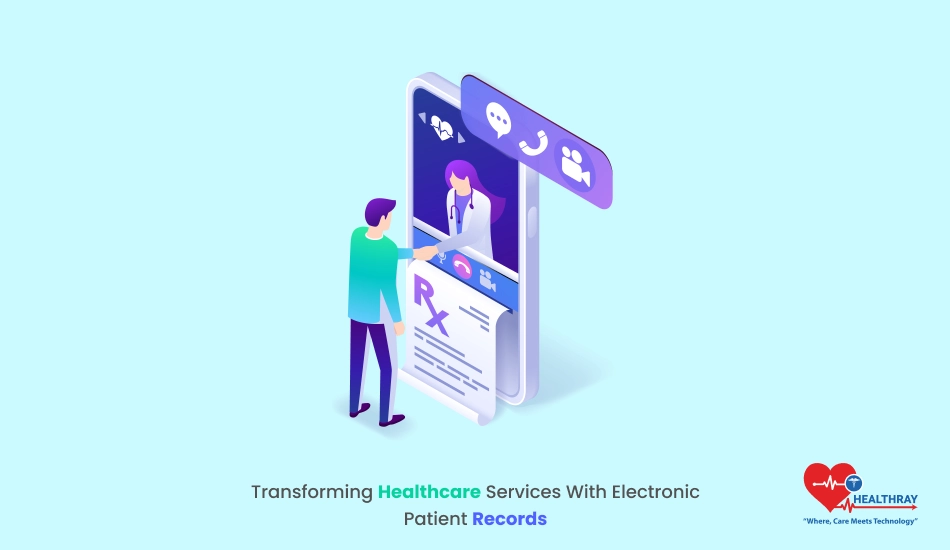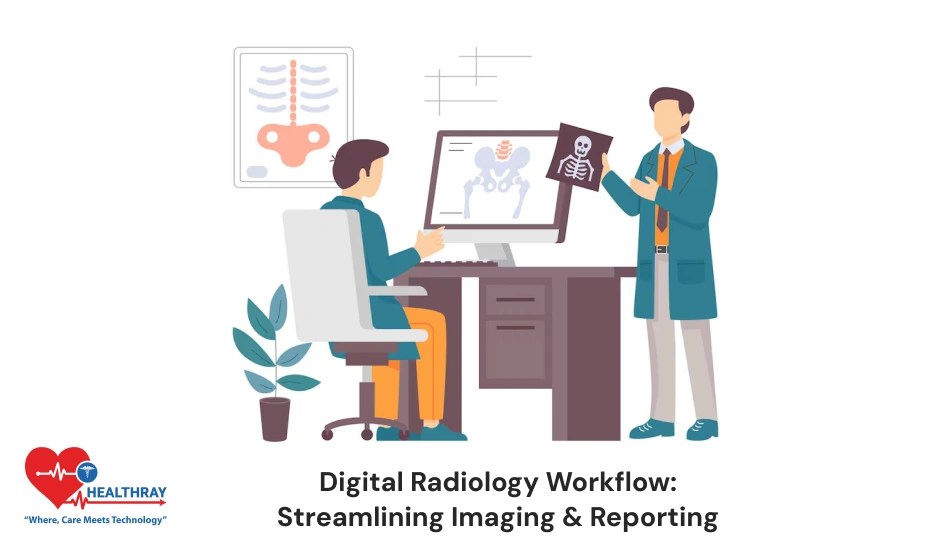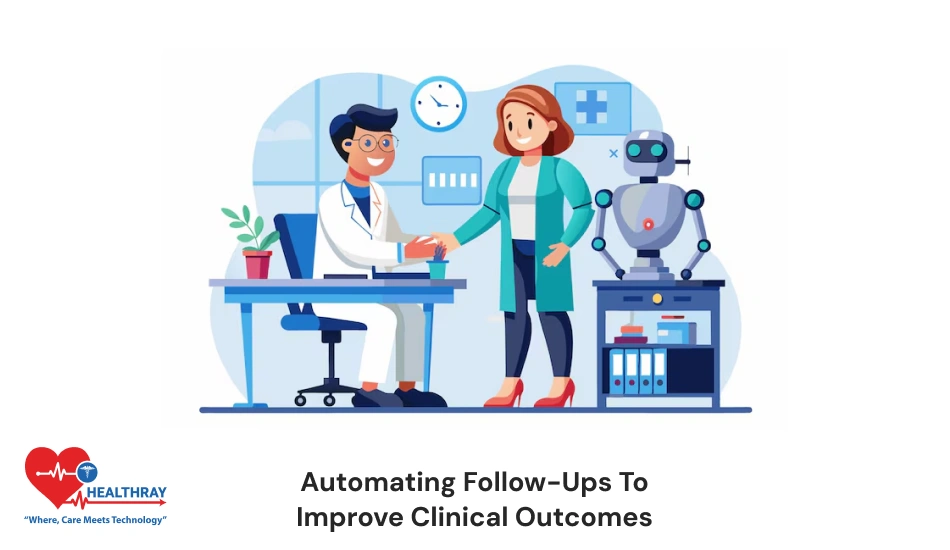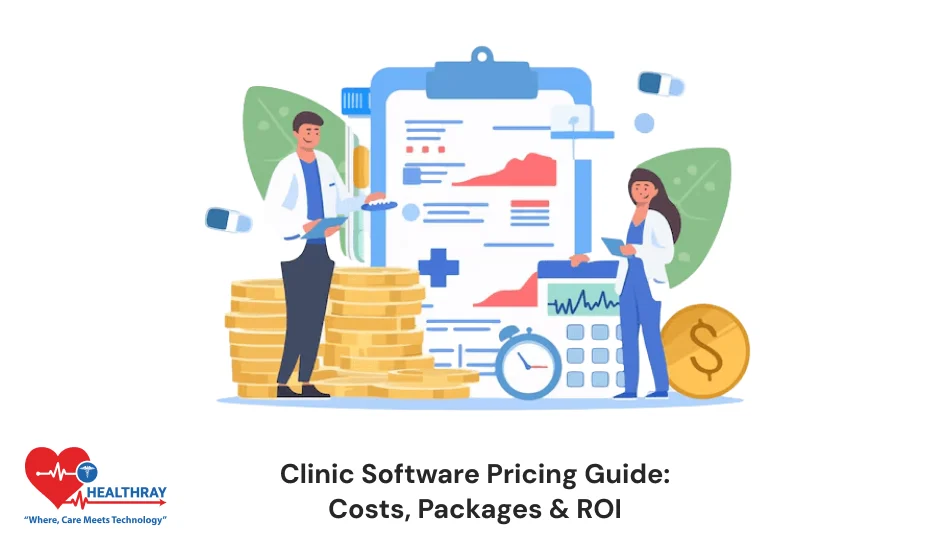Quick Summary
Electronic patient records have been adopted by every healthcare organization because it has endless benefits. It increases patient contentment to the next level, can forecast health, and lowers medical mistakes. In today’s lifetime, where every citizen has limited time and a shortage of resources. Therefore, EHR implementation is required by every hospital, doctor, and clinic. With these future systems, patients feel safe while using this type of software.
Introduction
Maintaining patient records is a troublesome task that is not possible without any sophisticated solution. Patients are the first asset of every health care organization. So, it’s important to make strategies to retain more patients.
Now, in modern times every hospital improves their infrastructure and provides advanced technologies to increase the patient volume. To stay competitive, it’s important to utilize AI health systems like Healthray’s electronic patient records. Further, this software facilitates versatile features for elevating patient care and improving overall public health.
The patient information management system brings all patient records at a central place, improves the quality of patient medical records, protects patient privacy, assists to remain compliant with clinical protocols, decreases the rate of human errors, and improves patient care outcomes. Additionally, it improves the patient’s medical life cycle and mitigating complex tasks.
Electronic Patient Records include distinct functionalities such as natural language processing (NLP) for extracting crucial data from various patient information and linking with a diverse range of systems such as electronic health records (EHR), pharmacy management systems, and laboratory information management.
What are the Key Benefits Derived from Electronic Patient Records?
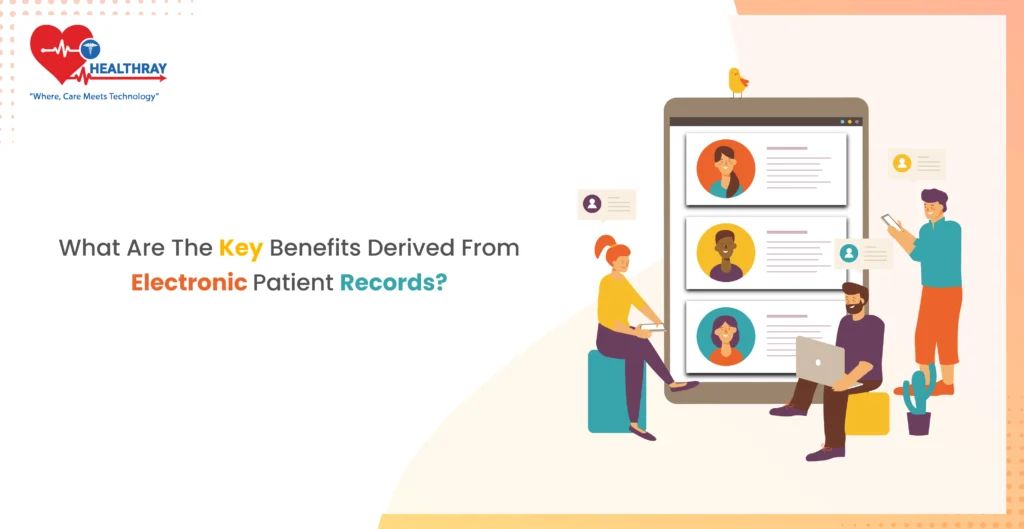
Electronic patient records modify the entire system of health care services. This software serves as the focal point of contact between patients and health care providers. Furthermore, it boosts the patient’s trust in health care organizations. Let’s have a look at the key benefits of electronic patient records :
Minimizes the treatment time :
EHR systems entirely abolish the paper-based records system. Transform the unstructured patient data into a structured and organized format. Medical records simply involved extensive information such as healthcare reports, and test results. Most importantly, it eliminates physical records, providing data security, and improving instrument data.
Storage of medical records for patients is made out easier with the personalized patient health information system. With the modern electronic medical records (EMR), clients can detect the deviations on their health and instantly inform with snapshots to healthcare providers. Additionally, it complies with medical records policy without major efforts.
The patient information management systems accumulate patient information from several internal and external sources. Furthermore, the patient records include historical patient data, clinical notes, progressive and treatment plans, and prescription records.
After recording patient data in a structured format, the data extracted and generated meaningful reports with the help of natural language processing features. These reports assist in preparing precise treatment plans on time. Therefore, Electronic patient records software minimizes the time incurred in formulating a patient’s treatment.
Improves public health :
Electronic health record allows patients to update their medical information and maintain their whole healthcare records in a unified platform. Therefore, it reduces government expenses on manual health surveys as it provides concise medical reports of individual health. Consequently, it makes the public aware of the prevalent health disease. Electronic medical records enhance public health in numerous ways :
- Continuous Health monitoring.
- Remote medical facility
- Maintain digital medical records
- Efficiently distribute medical resources
- Prevention from severe diseases.
Simplifies health care providers tasks :
Electronic patient records ease the various healthcare tasks such as appointment management, patient billing, maintaining vendor details, insurance claim processing, and preparing radiology reports. Also, helps in regularly compliant with healthcare guidelines.
It centralizes patient and hospital information which makes it easy to retrieve the specific patient data. Further, this information includes such as the patient’s demographic information, treatment notes, progressive notes, medication records, and more.
Electronic information systems vanquish paper records, forecast predictions and insights, manage medical records, maintain security, capture personal health information, and advance the healthcare industry. Through this system, it records patient charts, team reviewing modern records after sharing documentation with just a single click, and adheres to ethical obligation.
Additionally, this EHR system connects with several systems such as laboratory information management system, pharmacy management system, and human resource mismanagement system. Further, it simplifies the work of healthcare data and minimizes staff burden.
Facilitates secure portal :
Electronic medical record systems comply with the required steps to secure and safe transactions. These steps include persistently applying medical regulations, converting data into code, and regularly monitoring records. Also, suggest users to apply mix-letter passwords. Procedures regarding medical records are easy to maintain A glimpse at the advantages of a secure medical portal :
- Securely send medical records to other health care providers
- Patients have real-time updates on their medical information
- Improves relations with health care professionals
- Minimizes the legal penalty risk
- Lowering the hospital costs.
The Leading Patient Record Keeping Software
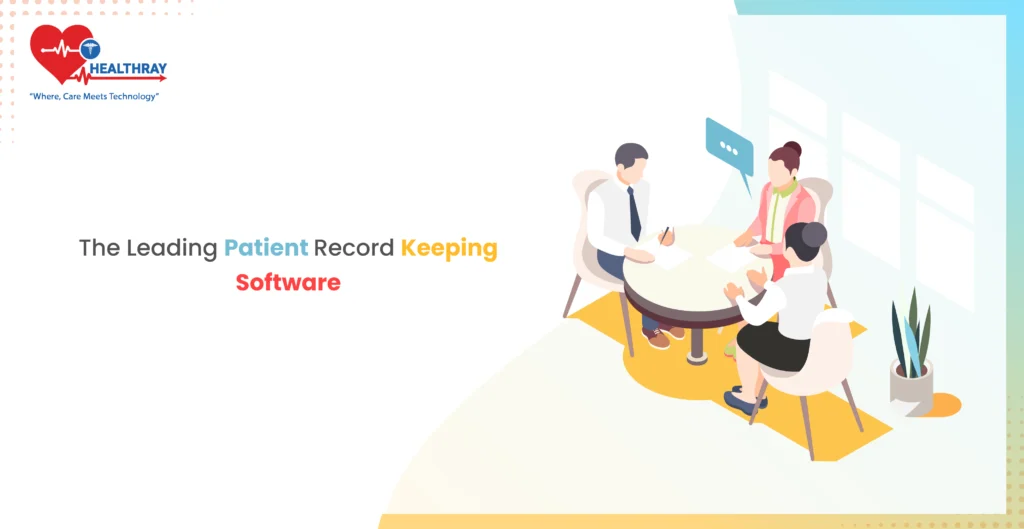
There are many patient record-keeping software in the market. However, few of them fulfill the prerequisites of health care professionals and satisfy patients. To simplify your process, we research Heathray, the leading patient record-keeping software.
Health information technology drastically revolutionized healthcare services. Further, the medical records Electronic Patient Records Systems maintain clinical data in a structured format. Consequently, it simplifies finding relevant records at the appropriate period.
Medical practices rapidly changed because of emerging technologies such as there is no need to meet in-person with healthcare professionals. Furthermore, the medical records management software supports in developing comprehensive employee training. We can call it a magnetic method, it increases the patient’s retention rate and reduces costs.
After EHR implementation, healthcare organizations have some positive effects on healthcare delivery. Additionally, it supports timely diagnosis and accurate patient treatment. We all are aware that a few minutes of delay in patient treatment can increase health risks and severe health impacts. Also, in certain cases, it might be the death of the person.
Step towards digital era with our healthcare solution
Revamp your hospital facilities and embrace change for better healthcare management. Ease in managing and organizing large medical datasets leads to effective analysis. Seize the opportunity now!
5 impacts of Electronic Medical Records on Patients
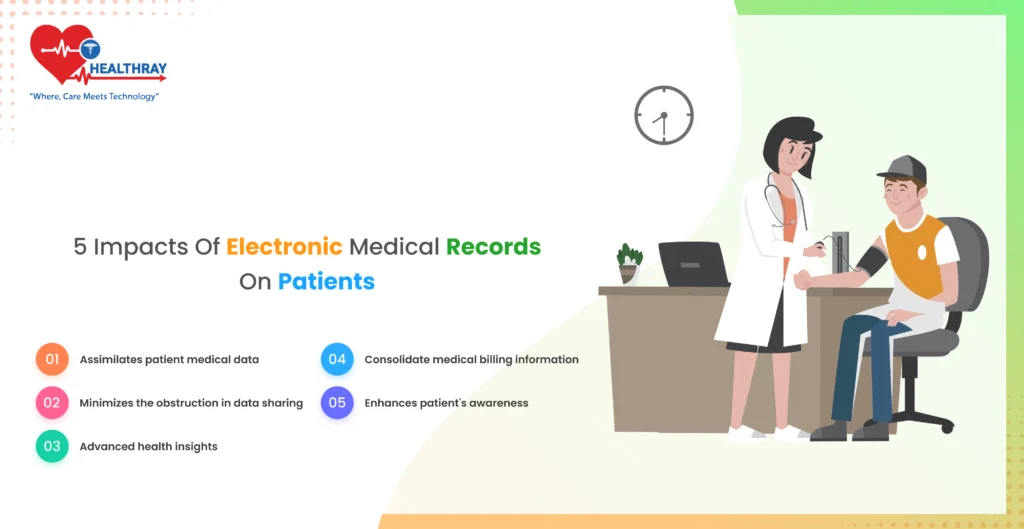
Electronic medical records are not only useful for healthcare professionals. However, patients experience more benefits after installing electronic health records software. The foremost advantage is recorded patient information in an organized form. To understand better, exploring the major 5 impacts of electronic medical records (EMR/EHR) on patients :
Assimilates patient medical data :
Manually amalgamating patient data requires extensive human efforts. But, it is simpler with Healthray’s electronic patient record, where all information is extracted from different sources. Generally, this includes vast patient medical information from prescription records to laboratory tests. The advantages of assimilating patient medical data are :
- Enhances medical accessibility due to electronic records
- Lowers severe disease risks.
- Increases patient involvement in their medical care
- Accurate medical analysis. Thereby, minimizing the mortality rate.
- Improves child and elderly patient care.
Minimizes the obstruction in data sharing :
Exchange medical records involve security risks. It is important to have patient consent on sharing healthcare records, as it might be a chance to misuse medical reports. Moreover, required to follow some basic security protocols for the seamless sharing of medical records. Additionally, medical records security is so extensive that it also helps secure medical data from internal healthcare staff. Here are certain benefits of data sharing :
- Saves a lot of hospital departmental time.
- Increases the positive environment in hospitals
- Quickly detecting critical medical disease
- Helps in making various clinical decisions.
- Assist in coordination with medical practitioner experts.
Advanced health insights :
Health insights have a major role in analyzing medical data. If the insights are inaccurate or full of medical errors, there is no meaning in medical analysis. Consequently, it delays the patient’s treatment procedure. Also, affecting patient’s health adversely. For every healthcare professional, it is important to understand the benefits of advanced health insights. Have a look at some of them:
- Improves accuracy in making patient’s healthcare decisions
- Assist in medication discovery
- Enhances health outcomes
- Simplifies the surgical procedure
- Supports in arranging medical inventories on time.
Consolidate medical billing information :
Electronic health records has an extensive amount of databases to assimilate the patient’s medical records and their financial transaction. Moreover, it helps in taking follow-up for residual payments. Furthermore, the residual payments mean the additional patient’s medical expenses which are being borne by hospitals. Furthermore, these payments are not included in the initial bills. This EHR system provides digital payments, which has numerous benefits such as :
- Ease the financial management process
- Minimizes the theft risks
- Simpler to make hospital financial decisions
- Minimizes the billing error
- Ease to recover the outstanding patient’s amount
Enhances patient awareness :
Patient awareness is crucial for preventing the disease. Furthermore, it is difficult to find software that not only helps in curing diseases. But, it also supports preventing critical diseases. For this, Healthray is the leading choice. Also, it is best for medical practitioners and patients. Some ways to enhance patient awareness are :
- Improving patient’s medical literacy
- Increases experience with different medical experts
- Incorporates digital healthcare resources
- Implementing Electronic Patient Monitoring Systems
- Articulate communication with healthcare professionals.
Conclusion
Electronic patient records enable patients to have active involvement in their medical care. Moreover, it has numerous benefits such as, minimizing treatment time, improving public health, simplifying healthcare provider tasks, and facilitating secure portals. Additionally, it has extensive impacts on patient care such as reducing the obstacles in sharing medical data and accumulating patient data. Additionally, it provides advanced health insights. Consequently, it assists in preventing patient’s diseases and contributes to lowering the mortality rate.
